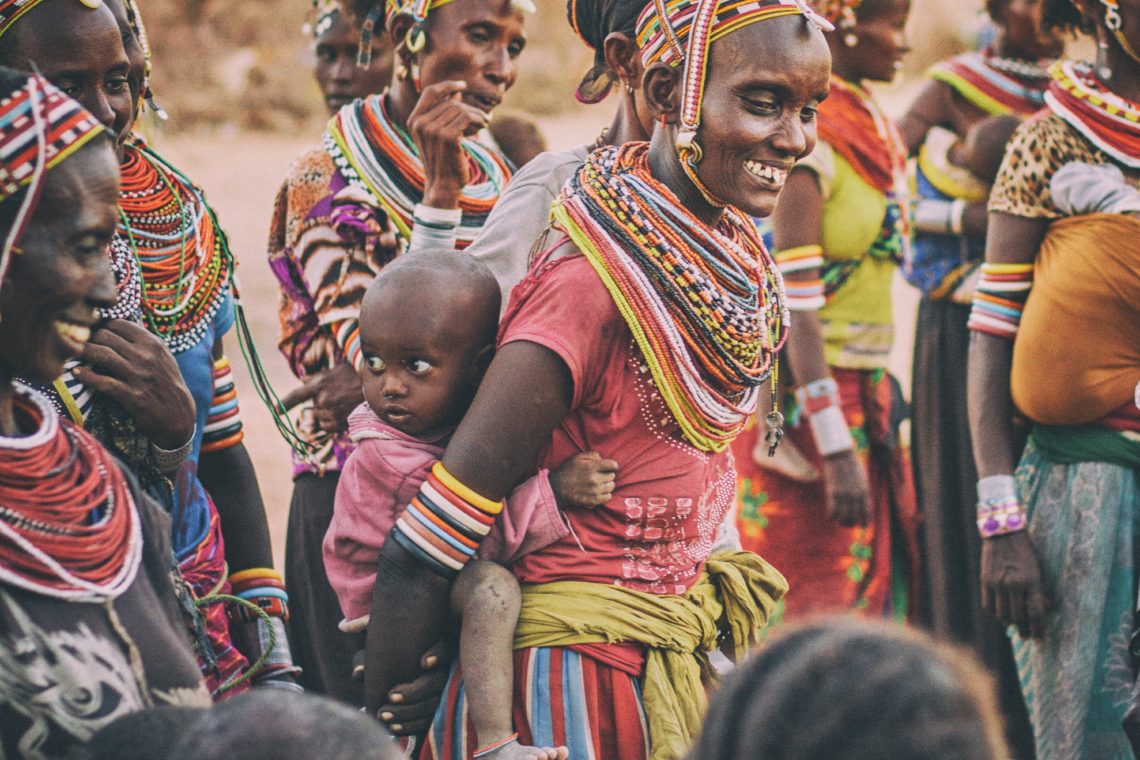Merriam-Webster’s lead definition of a matriarchy is: a family, group, or state governed by a matriarch. By this definition England under Queen Victoria could be considered a matriarchy. Cambridge dictionary defines it as “a type of society in which women have most of the authority and power, or a society in which property belongs to women and is given to children by women rather than men.” This is the definition that comes closer to my idea of matriarchy. This is the style of matriarchy, one in which women have the power, that is practiced in the Samburu village of Umoja in northern Kenya.
Umoja, Swahili for unity, was originally begun by women who survived rape at the hands of British soldiers only to be stigmatized by their communities. In this culture a woman who is raped may be beaten or abandoned for shaming her family. But the women only village soon became a haven for women escaping many aspects of the extreme form of patriarchy practiced by the Samburu. This includes female genital mutilation, rape, beatings, and being sold into marriage, often as children. The matriarchy of the Samburu is shaped by the extreme patriarchy of Samburu tradition.
In Umoja the women have autonomy. Umoja women have an independent income from the sale of their beads and by running a campsite used by tourists. Each woman keeps a bit of the money from the sale of her beadwork and the rest goes to bettering the community. Despite the lack of men there are many children. Some of the money goes to educating them. The rest goes to seeing to the other basic needs of the village.
The success of Umoja has inspired other women in the area to form their own matriarchal villages. The other villages may not enforce the same level of isolation as Umoja but even in those that allow men the power remains firmly in the hands of the women. In both “The Land of No Men: Inside Kenya’s Women-Only Village” by Vice under its Broadly umbrella and CBS This Morning’s “Inside Umoja village in Kenya where women rule and victims of abuse can heal” the women interviewed were uniformly happy with their choices. The men were less sanguine.
The matriarchal villages of northern Kenya are a shocking anomaly. Very few of us can think of a matriarchy past or present that exists outside of mythology. Some Native American nations are matrilineal as are a few cultures in southeast Asia though it is debatable whether they are matriarchal. In Judaism a child’s status is passed through the mother. The same was true under American race-based chattel slavery. Neither culture is a matriarchy though there is some room for argument about the effect of this matrilineal lineage on the cultures of Black American non-Immigrants.
Most of us live in patriarchies in which women are suppressed or isolated into restrictive gender roles making it, in many ways, much easier to imagine a world without women. A thing becoming women’s work strips it of its prestige. Being a secretary was once considered a high-level position. Then it became women’s work. Women are cooks, men are chefs. Women are housekeepers, men are butlers.
In the West the image of women is still dominated by the Madonna/whore dichotomy with most imagery being either sexually exploitative or matronly. The thing these all have in common is much of the time women are seen as accessory rather than necessary. It is easy to imagine that a world without women would not be all that different than the world as it exists today, except that there would be more male victims.
A world without men is more difficult to envision. The matriarchal worlds of fiction tend to simply flip the gender norms without altering how power is wielded. Or they write of a world of harem politics without understanding that harem politics exist because the women in harems lack agency. It is hard to imagine a matriarchy that does not exist as a foil to patriarchy. One thing that has proven continually true is that when women take power, they tend to use it to protect their children, their families, and their clans.
Sources
https://www.youtube.com/watch?v=gMdRKbP-JpY
https://www.vice.com/en_us/article/qvdeq5/the-land-of-no-men-inside-kenyas-women-only-village
